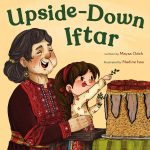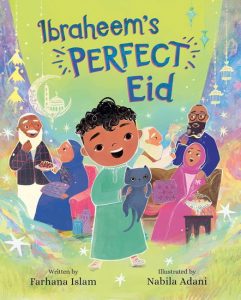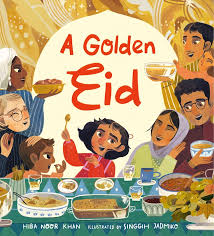On the night of a double birthday and a full moon, Darius is drawn deeper into the struggle between the healer he is meant to become and the warrior he cannot stop being.
Read Part 1 | Part 2 | Part 3 | Part 4 | Part 5 | Part 6 | Part 7 | Part 8
Note: This is the last chapter of Far Away until after Ramadan. That’s why this chapter is extra long. In the meantime, look for my Ramadan-themed short story series.
* * *
Cutting Hay
It was late morning. Haaris and I had finished carrying in a huge stack of bundled hay that had been cut from the far field. The bundles were stacked almost as high as my shoulders, bound with twisted straw rope and smelling of dust and summer.
“Bring some bundles to the straw cutter,” Haaris instructed. The cutter stood beside the pile, bolted to a low wooden frame, the long handle worn smooth where hands had gripped it over the years. I had noticed it before, but this was the first time we were using it.
I handed Haaris a bundle, and he shoved it across the flat bed beneath the blade.
“Keep your fingers back,” he said gravely, tapping the slot where the iron would fall. “If you leave them here you will lose them. Baba says a man in the next village lost three.”
“Okay,” I said.
He gave me a suspicious look, as if unsure whether I truly understood.
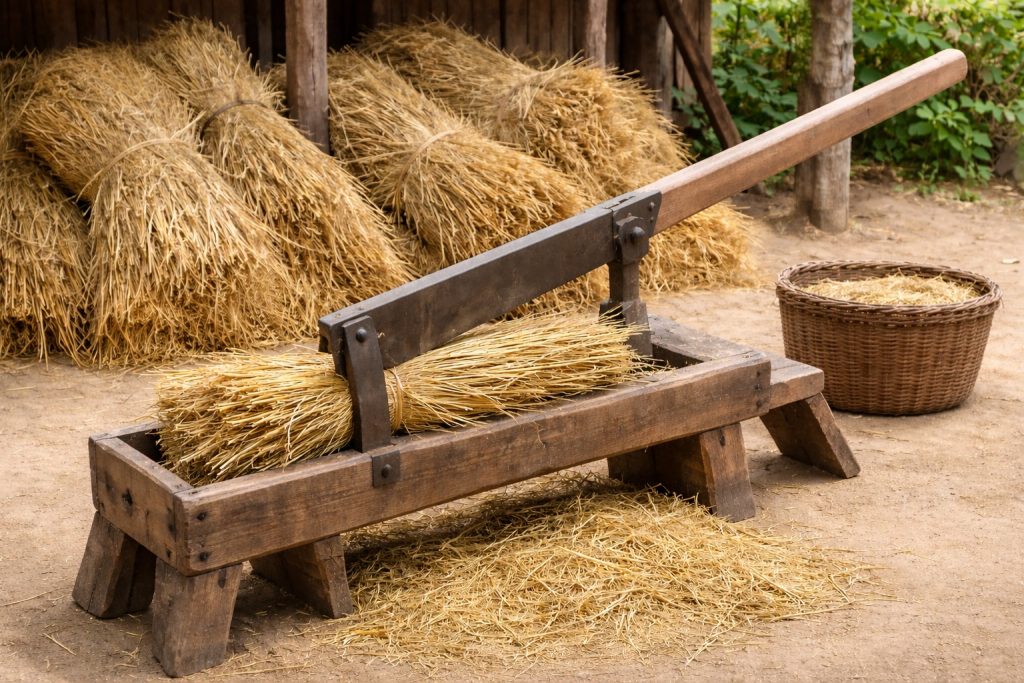
He pulled the lever down. The blade came through with a heavy, clean chop. A neat spill of short-cut hay dropped into the basket below.
I stared. On my father’s farm, I had cut fodder with a hand blade on a chopping block, bent over until my back burned, hacking again and again while Lady Two waited, her dark eyes patient. In winter, my fingers had gone numb before I had finished enough for a single feeding. The cuts had been uneven, some too long, some too short, and I had always been in a hurry because there was so much else to do.
Here, the hay fell in perfect lengths with every stroke.
“Let me try.”
Haaris stepped aside, pleased to be asked.
I fed the bundle forward the way I had seen him do, lined it up, and brought the lever down. The resistance traveled through the wood into my arms, solid and satisfying.
We continued, Haaris feeding and me chopping. The rhythm came quickly. It felt almost like martial arts practice, the alignment and timing, the clean finish of each stroke.
“This would have saved me so much time on my farm,” I commented.
Haaris grinned. “You see? We are very advanced here.”
I smiled and kept working.
“Not too much at once,” Haaris said. “Or it will jam.”
“I know.”
“You don’t know everything,” he replied cheerfully.
I let that pass.
As we worked, Haaris explained that when it was done, we would soak the cut hay briefly, then mix it with bean mash, to make it easier to eat and more nutritious. I sort of knew this. On my old farm, I’d mixed it with chopped greens for the same reason.
Haaris talked about how the black goat had tried to butt him that morning and how Bao had caught another rat in the granary. “She ate half of it. So gross. It’s not like she needs it. I always feed her beef fat.”
When we were done, I ran my hand once along the smooth wooden frame, almost without thinking.
“Do not put your hand under there,” Haaris said suddenly, pointing at the blade again.
“I won’t,” I told him, smiling.
Animals Wrestling
We’d finished it quickly, and Haaris wanted to take a break from work to play what he called “animals wrestling,” where we each pretended to be an animal – I might be a bear, and he’d be a tiger – and we would wrestle while acting like our animal. We were supposed to growl, bark, or hiss like that animal. I found it silly, but Haaris loved it, so I indulged him every now and then. This morning, I was a chimera, and Haaris was a tiger.
I didn’t even know what a chimera was, but Haaaris explained that it had a deer’s body, a dragon’s head and scales, and cloven hooves. It was a gentle, herbivorous creature that avoided harming any living creature, and would even walk on clouds to avoid crushing grass.
He could not tell me how such a creature was supposed to fight, so when he charged in with teeth bared and hands in claws, I danced away, saying in an airy voice, “I cannot harm you, o human child.”
Haaris found this hilarious. He fell on the ground laughing and holding his stomach. Even I chuckled a bit.
“Well, isn’t this the sweetest little picture?” a rough voice said.
Capable of Violence
I whirled, shocked. There before me stood six people. Four men and two women, their boots and trousers caked with road dust. The men were young, broad-shouldered, their faces hard and unashamed. The gate had been closed, though not locked. These people had opened the gate and walked straight into the farm without permission. And I, utter fool that I was, had been so engrossed in a stupid children’s game that I had not heard them.
They stood loosely spaced, as if by habit rather than plan. The men were broad-shouldered, their movements unhurried, the kind of ease that comes from knowing one is feared more often than challenged. One of them, taller than the rest and perhaps nearing forty, had a thinning hairline and a permanent squint, as if the world annoyed him. Another, younger and lean, chewed on something and watched me with idle curiosity.
The leader stood slightly forward, though no one had announced him as such. He was about twenty-five, compact and alert, with sharp eyes that missed little. His hand rested near the hilt of a short blade tucked into his sash. The others mirrored him without thinking, their weapons cheap but serviceable: cudgels, a rusted spearhead hafted to a pole, knives with worn handles. These were not soldiers, but they were not desperate either.
None looked starved, though all looked… I couldn’t think of a word until I realized that they reminded me of my father when he was drunk. Capable of violence. Not only capable, but unconcerned. Violence to these men was a casual thing, a tool to be employed and then forgotten. They would kill, and it would mean nothing to them.
One of the women stood with them openly. She had a scar along her chin, pale and thick, as if it had healed badly. Her gaze was steady, appraising, and without shame. The other woman remained a step behind, her shoulders rounded, her eyes fixed on the ground. When she shifted her weight, she did so as quietly as possible, like someone trying not to be noticed.
The scarred woman glanced at Haaris, then grinned.
“That one’s pretty,” she said, nodding toward him. “Cute. He’d fetch a good price in the night market.”
Haaris froze.
Crane Dances in the River
I felt something cold settle in my chest.
“Run,” I said, without turning my head. “Go to your father. Now.” And I took a step to the side to place myself between the men and Haaris.
Haaris hesitated, just long enough for one of the men to take a step forward.
I moved before I thought.
My body dropped into River Flow as naturally as breathing. My weight sank, and my vision widened. I took them all in at once: the looseness of their grips, the way one man favored his left leg, the impatience flickering in the leader’s eyes. The man stepping toward Haaris was young, perhaps the youngest among them, his confidence not yet tempered by consequence.
“Move, boy,” he said to me, and reached out.
I kicked him in the stomach, sharp and fast, and quite hard.
The breath went out of him in a pained grunt. Before he could recover, I swept his forward foot with my instep. As he pitched toward me, off balance and surprised, I drove my knee upward into his jaw, which cracked audibly. A small bit of flesh flew out of his mouth, and I guessed he’d bitten off the end of his own tongue.
He went down hard and did not rise. Blood poured from his mouth.
“Crane dances in the river,” I said softly, almost dreamily, and I knew that I had a smile on my face, though I did not care.
For a heartbeat, everything stopped.
The other men tensed as one, hands flying to their weapons. A few of them cursed. One said, “What the devil?” The woman with the scar shifted her stance, her eyes bright. The cowed woman gasped softly.
Then Ma Shushu’s voice cut through the air.
“Hold! What is the meaning of this?”
He strode forward, calm but unmistakably furious. Lee Ayi was behind him, her face pale. She had one hand behind her back, as if hiding something. Haaris had vanished into the house.
“We need food,” the leader said. His tone was not a request. “And money. Your boy here has harmed one of my men. You owe restitution for that.”
I considered dashing into the house to retrieve my dao. One of the thugs was already down, which left three. Of those three, one had a bad knee. As for the woman with the scar, she was clearly capable of violence, but did not appear to be armed. With the dao, I could take them all, I was sure of it. It wouldn’t even be hard.
But no, I could not leave Ma Shushu to face the group alone, even for a moment. Instead, I would dispatch the leader with my bare hands, take his blade, then use it to put down the others. I shifted my weight forward.
Before I could take a step, Ma Shushu whistled.
It was a sharp, piercing sound, nothing like the gentle calls he used with the animals. From the far field, the farmworkers straightened and began to run. Hoes and poles were still in their hands.
The men hesitated. One spat into the dirt.
“Another time,” he muttered.
They backed away, dragging their unconscious companion with them, leaving a trail of spattered blood in the dirt, not even picking him up to carry him with dignity, but dragging him through the dust. They retreated down the road without further words.
A Great Healer
 Ma Shushu walked to the gate, and I followed at his side. He glanced sideways at me but said nothing. After verifying that the group was gone, he locked the gate – something that was normally only done at night. Then he turned to me with a troubled gaze.
Ma Shushu walked to the gate, and I followed at his side. He glanced sideways at me but said nothing. After verifying that the group was gone, he locked the gate – something that was normally only done at night. Then he turned to me with a troubled gaze.
“I do not approve of violence.”
I chewed on my lip, but I did not look away. “They tried to take Haaris. They said they would sell him in something called a night market.”
He tipped his head back, looking up at the gray sky. “Why didn’t you call for me sooner?”
I shrugged. “It happened very fast.”
“Darius.” Ma Shushu’s voice was low, his body still. My shoulders tensed as I felt the hammer about to drop. He was going to send me away. I had always known this moment would come, must come. Who was I to think I could be cared for, loved, and safe? What kind of fool was I?
“You have the potential to be a great healer,” Ma Shushu said.
I glanced up at him in surprise. “Huh? Me?”
“I’ve seen how you watch when I treat my patients. How your hands move in the air, mimicking my movements. Sometimes you look to the medicine that is needed before I even select it. You could be as good as me or better. This could be your future, your calling. Your means of providing for yourself and your family in this world.”
My mouth hung open. “I…”
“I do not approve of violence. The commission of violence is not compatible with healing.”
I did not know what to say.
Ma Shushu gave an annoyed cluck of his tongue, then began to walk away. He took two steps, then turned back to me. “I caught the last bit as you put that man down. You said something. What was it?”
I swallowed and cleared my throat. “Crane dances in the river,” I whispered.
Ma Shushu’s eyes narrowed the tiniest bit. He gave me a long, even gaze, then turned away again. I watched as he went to the farmworkers, clapping their shoulders and telling them they would receive an extra coin’s pay at the end of the day.
When he was done with that, he called me over and said, “Your aunt Jade is preparing a special meal for tonight. You should go help her. And tell Haaris to finish cutting the hay, then go check the animals in the far field. Make sure the fence along the ditch has not loosened.”
“Yes, sir,” I said, and walked away. Only much later did I realize that he never asked how I had done what I did to the thug. He had expressed no surprise at my ability. Only disappointment at the deed.
Ayah!
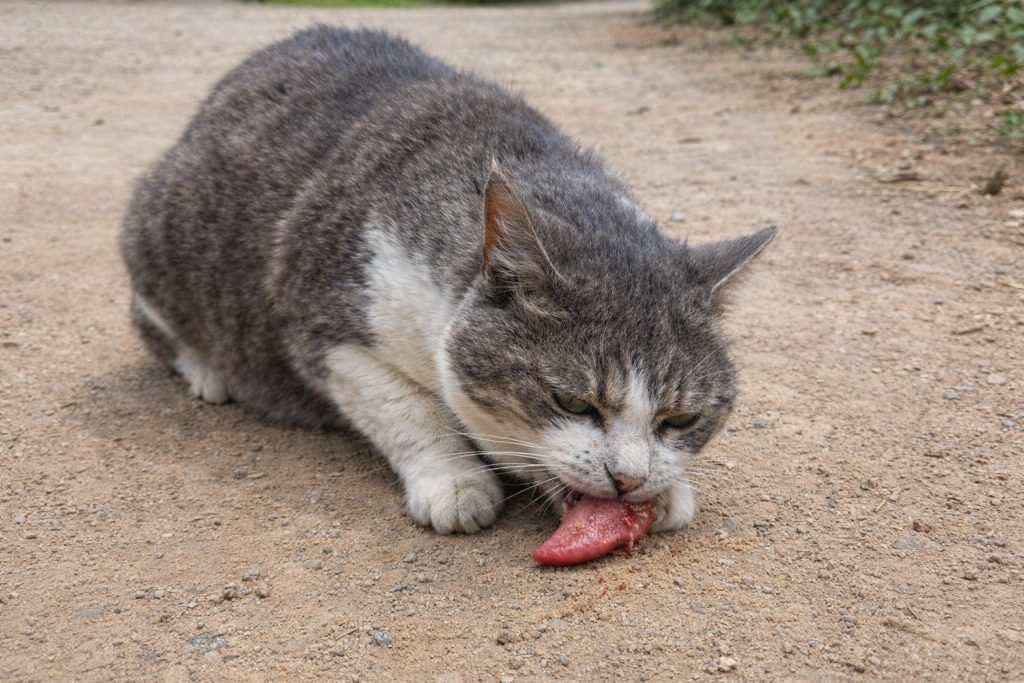
Halfway back to the house, I encountered Bao hunched in the dust of the path, eating something she had found. “What do you have there, kitty?” I asked. “Another rat?” Bao was absolutely amazing at catching –
I saw what she was eating. It was the thug’s tongue. A laugh tore out of me, so exuberant and fierce that I tipped my head back and opened my mouth wide. Immediately, however, the laughter died, and my face went flat. This isn’t supposed to be funny, I thought. What’s the matter with me? I rubbed my face vigorously, averted my eyes from Bao and her bloody little meal, and walked on.
I found Haaris sitting on the front step of the house, blowing on a blade of grass with his eyes closed.
“What are you doing?”
“There’s some way to whistle with grass. I saw one of my cousins do it once. Auntie Ming’s son, the fat one. But I don’t know how.”
I passed on the message from his father.
He opened his eyes and gazed at me intensely. “I was watching from the door. I saw what you did.”
“Okay…” I crossed my arms, expecting him to judge me.
“It was incredible!” he shouted, and jumped up. “You went like this! Ayah!” He threw a clumsy kick. “Then like this, chaka! And like this!” He performed a reasonable imitation of my moves, like an actor on the stage. “How did you learn that?”
I shrugged. “From my father. Now go check on the animals like your Baba said. And don’t talk about it anymore, please.”
He walked off, still shouting, “Ayah!”
I went inside.
The kitchen was warm and fragrant. A large pot simmered over the low fire, steam rising in steady curls. Lee Ayi stood at the long wooden table, sleeves rolled back, flour dusting her forearms. Before her lay a mound of dough, smooth and elastic. She was pulling it into long strands, folding it, stretching again, her movements confident and practiced.
“Wash your hands,” she said without looking up.
I did so at the basin, scrubbing carefully.
She handed me a cleaver and gestured toward a basket of scallions and garlic. “Slice these thinly. Not crushed. Even pieces.”
I began cutting. The garlic stung my nose and made my eyes water. The scallions released a sharp, green scent. On the stove, chunks of beef simmered with ginger and dried chilies. The broth had already turned cloudy and rich.
“These are longevity noodles,” she said, pulling another long rope of dough until it thinned under its own weight. “They must remain uncut.”
“What is it for? What’s the occasion?”
“It’s Haaris’s birthday. Fifteenth day of the Tenth Month. He is eleven today.”
“Oh.”
She set the stretched strands aside and turned to a wooden board where sesame seeds had been lightly toasted. “Grind these,” she instructed.
I used the stone mortar, pressing and turning until the seeds released their oil and became a thick, fragrant paste. She mixed it with honey and shaped small cakes that she would fry quickly in oil later.
For a time, we worked in silence.
The Family Dao
“Zihan Ma is mad at me,” I said.
Lee Ayi stopped working and regarded me. “It’s his instinctive reaction to violence. But he will soften up. He knows you saved Haaris.”
“I saw you watching. You had something behind your back.”
She looked at the ground, then up at me. “I had my dao. But do not tell Husband.”
“Your wooden dao?”
“No.” She wiped her hands clean, then walked to the front door, looked outside, and then went to her bedroom. A moment later, she came out with a real dao in a gorgeous wooden sheath. She held it with both hands, not casually, but the way one carries something entrusted. The sheath was deep red, worn darker along the edges where fingers had touched it over the years. A pattern ran along its length in thin gold inlay, not gaudy, but precise. The design was of five animals arranged in a circle: tiger, crane, leopard, snake, and dragon, each flowing into the next so that no single creature dominated the design.
I stared.
“This is the Lee family dao,” she said quietly. “It has been passed down for many generations.”
She knelt and set it carefully across her lap. “After Jun De died, it should have gone to Yong. My father had it prepared for him. But when Yong was sent away, my father could not bear to see it hanging unused.” She paused. “He gave it to me.”
I stared at it longingly, Zihan Ma’s admonitions forgotten.
“May I draw it?”
She nodded. “Be careful. It is very sharp.”
I took it carefully and drew the blade.
The steel slid free with a soft whisper. The metal was slightly curved, bright but not mirror-polished. Fine lines ran along its surface like ripples, the mark of careful forging. Near the base of the blade, etched shallowly but unmistakably, was the Five Animals symbol again, the same circular design as on the sheath.
The handle was unlike any I had held before. It was pale and smooth, dense and cool beneath my fingers.
“Is this bone?”
“Fossilized ivory.”
Inlaid into the handle were thin slivers of mother-of-pearl that caught the light and shimmered softly. The balance was perfect. Not heavy, not light. It rested in my hand as if it had been made for it.
I swallowed.
“The sheath?” I asked.
“Gold inlay over teak.”
An Inherited Disease
I gave the weapon a quick twirl.
Lee Ayi gasped. “Careful!”
I smiled and stood, stepping back to a clear area in the living room. Without warning, I shot the dao out in a long jab, then whipped it back and forth in a fanning motion. I slashed diagonally, then drew it up between my body and my free hand – a very risky thing to do with a live blade. Spinning, I hid the blade behind my back, then used the momentum of the spin to whip it out in a wide arc. I continued, thrusting and slashing, moving my feet in tight steps, mindful of the limitations of the space. After a few minutes, I stopped, approached Lee Ayi and bowed to her, offering the dao with both hands.
She stared at me open-mouthed, then took the dao and sheathed it carefully.
“Do not tell me,” she said, “that Yong was mad enough to make you practice with a live blade.”
“I’m sure he would have, if he’d owned one. No, I was mad enough to do it myself.” I lifted my left pant leg and showed her the long, raised scar across my thigh. “Not without a few accidents, though.”
She shook her head. “We’re all insane. It’s like an inherited disease.”
“Who?”
“Us.” She pointed back and forth between herself and me. “The Lee family.” She blew out a heavy breath. “Let’s get back to work.” She put away the dao, and we worked in silence after that.
Birthdays
As evening approached, the table was set. The noodles were cooked carefully and lifted whole into bowls, long and unbroken. The beef was tender, the broth deep and hot. The sesame cakes were golden and sticky with honey.
We prayed Maghreb as a family, then sat to eat. Zihan Ma said a dua for the family, and a special dua for Haaris, asking Allah to protect him, grant him health and wisdom, and to always keep him on the path of Islam.
The food was wonderful, and I ate quietly, thinking about all that had happened that day.
“When’s your birthday, Darius?” Haaris asked.
The question caught me off guard.
“In late summer,” I said. “When the cicadas are loud.”
“What day?”
“I don’t know the day.”
“How come you don’t know? And how old are you now?”
“I’m fourteen.”
Haaris gave a puzzled frown. “That’s all?”
“But if it’s in late summer,” Lee Ayi said, “then it has already passed. Why didn’t you say anything?”
“My mother used to give me an extra portion of food on my birthday. After she passed, my father never marked it. I didn’t think it mattered. I did not know you would celebrate such things.”
Looking around the table, I saw that Haaris looked confused, Zihan Ma appeared regretful, and Lee Ayi had tears in her eyes.
“I’m sorry,” I said. “I didn’t mean to ruin the evening.”
“You didn’t ruin anything,” Zihan Ma said. He came to me and put an arm around my shoulders. “Next year, we will celebrate your birthday on the 15th day of the 8th month. But this year, today is your birthday.” He raised his hands and made a dua: “O Allah, I ask you by all your names, and by your mercy, to protect this boy Darius. Purify his heart with water and snow. Make him a great healer, and put barakah in his hands.”
He stood. “We have gifts.”
Haaris received a thick winter coat lined with cotton, and a wool cap dyed a dark green. He turned the coat over in his hands, beaming.
“For when the north wind comes,” Lee Ayi said.
Then Zihan Ma handed me two things: the round white Muslim cap that he always wore for salat, and a long wooden sabha made of sandalwood with three sections of 33 beads each. These were both his own, I knew. I had seen him using the sabha to count the praises of Allah.
I didn’t care that he had not planned these gifts in advance. The fact that he gave me something of his own touched me, and I smiled widely and genuinely, and thanked him.
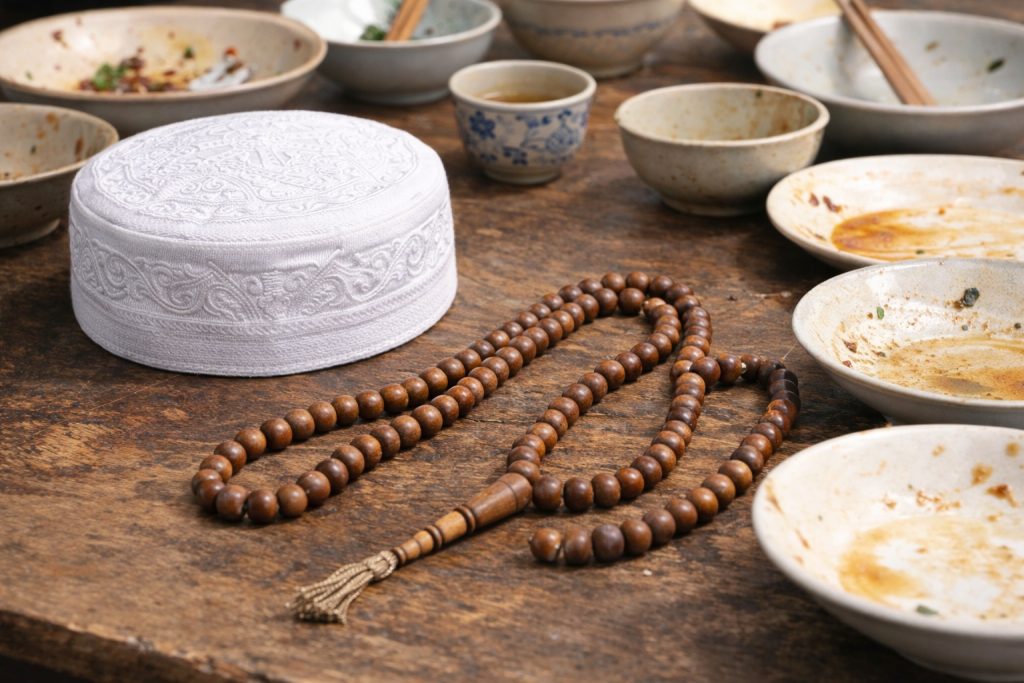
Outside Looking In
Even as all this transpired, however, I felt like an actor. No, not an actor exactly. My happiness was real, but I was disconnected from it, as if I were actually standing outside the house in the cold, peering in through a gap in the shutters.
I saw the smile on my own face as if it belonged to someone else. I heard my own voice answering Haaris’s jokes. Watching from outside like a beggar, I saw myself take a bite of a honeyed sesame cake.
I saw Zihan Ma, wanting me to be something I was not. My eyes moved to Haaris, watching me with a strange mixture of admiration, awe, and pity. And I saw Lee Ayi – another stranger in her own home. Another Lee. She was not in the house. She was out here, with me, in the cold, looking through the window at a shadow of herself.
That night, when the house had grown quiet and the lamps were extinguished, I lay awake.
Moonlight spilled through the window, pale and full. The fifteenth of the month was always a full moon, I knew that much at least.
I rose carefully and drew my own dao in its sheath from beneath my mattress. Strapping it to my back, I stepped outside.
Silver Fields
The fields were silver. The air had turned frigid. I walked to the far field and planted my feet in the hard earth, then swiveled them lightly, feeling the texture of the earth. Reaching up to my shoulder, I drew the dao.
At first, I moved slowly, feeling the balance of the blade. Then the faces of the six intruders returned to me. The scar along the woman’s chin. The young man’s jaw snapping beneath my knee.
They would come again. If not them, then others. “In the end, no one will protect you but you. No one will save you but you.” That was my father’s voice.
“Allah is the Protector of the believers. He brings them out of darkness into light.” That was Zihan Ma’s.
I moved faster. The blade cut the air in clean arcs. My steps sharpened. I struck as if someone stood before me. “Violence only begets more violence,” Zihan Ma would say.
I moved even faster. I drove myself until my arms trembled and my lungs burned. When at last I stopped, the tip of the dao rested against the soil, and I bent forward, breathing hard beneath the full moon.
The household was asleep and silent as I slipped back into my bed.
A Figure in the Dark
This became my routine every night. Do my work, help Zihan Ma with his medical practice, take my classes, study, pray, then – when everyone was asleep – come out here to the far field and train, breathing vapor into the frosty night. Live dao in my hand, I moved like a chimera – not the peace-loving chimera Haaris had told me about, but a Lee family chimera, which must be a creature made up of all the strongest, fiercest, most deadly parts of the five animals.
I moved until my legs trembled and my sides ached. I pushed myself even harder than I had when I was alone, after my father left. After perfecting the old moves, I innovated new ones. My endurance and strength grew. New calluses formed on my hands. Within a month, my shoes were tattered and nearly falling off, though I repaired them as well as I could with Lee Ayi’s sewing needles.
One night, returning to the house after my secret practice session, I saw a figure coming up the path in the dark. The moon was down to a thin metallic crescent, and gloom covered the farm. Yet I could see that the figure walked unsteadily, as if wounded or weak.
I watched the figure, and as it drew closer, my heart seemed to stop in my chest. I did not believe in ghosts, but I did believe in the jinn, for the Quran spoke of them. Silently, without breath, I said, “La ilaha ill-Allah.” My hands twitched from the strength of my pulse as I stood as still as a grave marker in the silent, dark night.
* * *
Come back after Ramadan for Part 10 – Reunion
Reader comments and constructive criticism are important to me, so please comment!
See the Story Index for Wael Abdelgawad’s other stories on this website.

Wael Abdelgawad’s novels – including Pieces of a Dream, The Repeaters and Zaid Karim Private Investigator – are available in ebook and print form on his author page at Amazon.com.
Related:
As Light As Birdsong: A Ramadan Story
Kill The Courier – Hiding In Plain Sight
The post Far Away [Part 9] – Crane Dances In The River appeared first on MuslimMatters.org.

 loves and is pleased with, of outward and inward actions—of the heart, the tongue, and the limbs.”2 Worship, therefore, is not limited to what is done, but also includes what is deliberately avoided for the sake of Allah
loves and is pleased with, of outward and inward actions—of the heart, the tongue, and the limbs.”2 Worship, therefore, is not limited to what is done, but also includes what is deliberately avoided for the sake of Allah 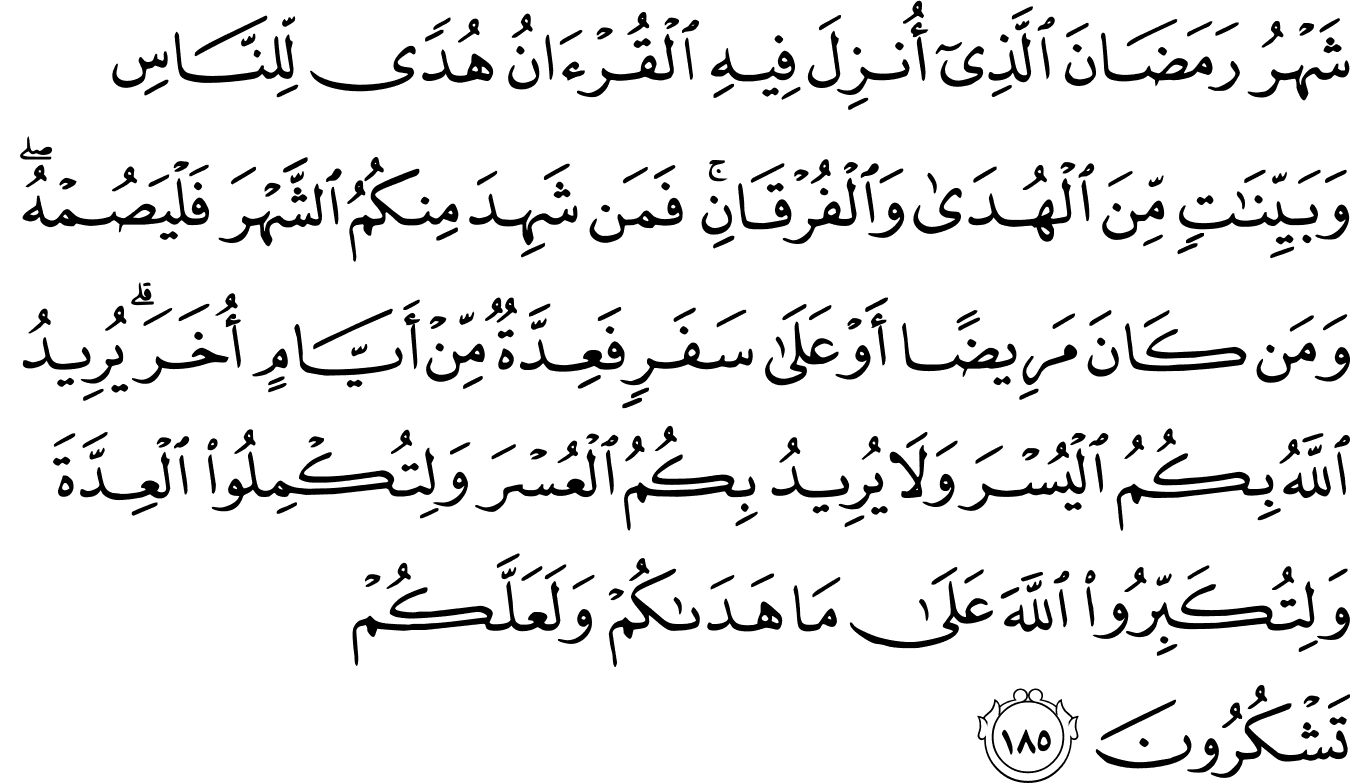
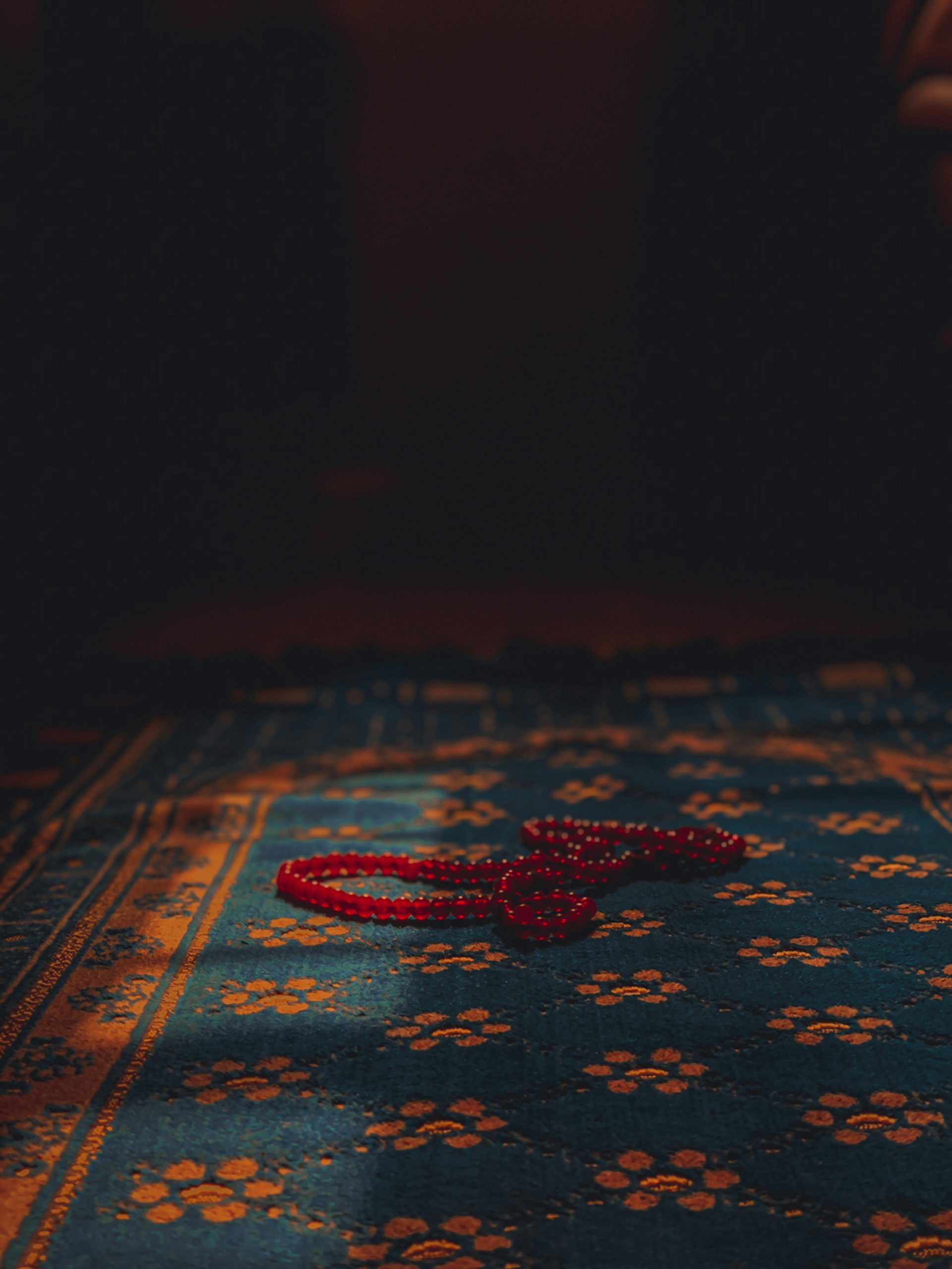
 also counted fasting in Ramadan as one of the five pillars of Islam in the famous Hadith of Jibreel
also counted fasting in Ramadan as one of the five pillars of Islam in the famous Hadith of Jibreel  .4
.4
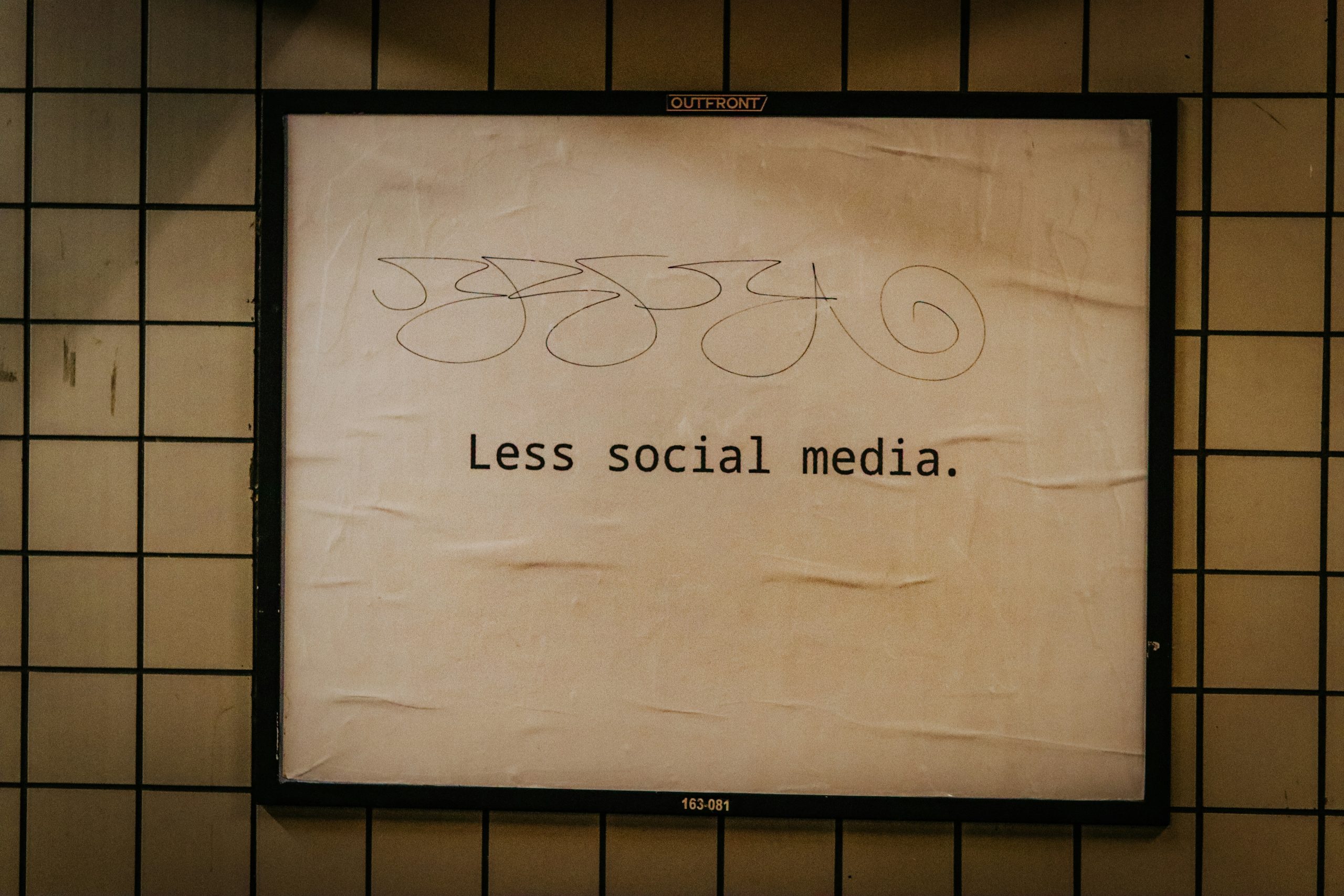


 ” text. And I get it. You’re tired of being told what to do, how to be Muslim, why you should care.
” text. And I get it. You’re tired of being told what to do, how to be Muslim, why you should care. “Alms are meant only for the poor, the needy, those who administer them, those whose hearts need winning over, to free slaves and help those in debt, for God’s cause, and for travellers in need. This is ordained by God; God is all-knowing and wise.” [Surah At-Taubah: 9;60]
“Alms are meant only for the poor, the needy, those who administer them, those whose hearts need winning over, to free slaves and help those in debt, for God’s cause, and for travellers in need. This is ordained by God; God is all-knowing and wise.” [Surah At-Taubah: 9;60]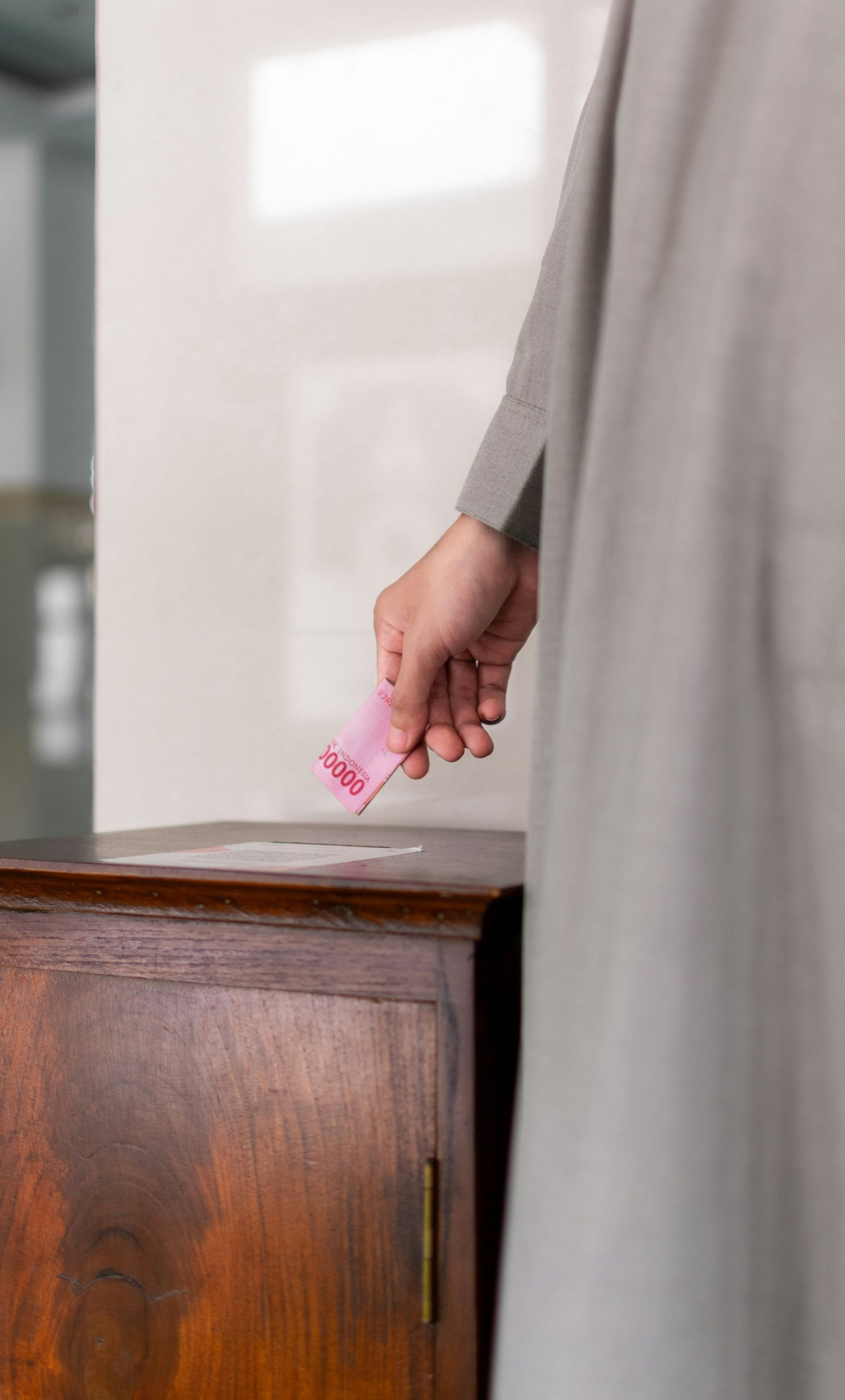
 Rupert Lowe
Rupert Lowe 





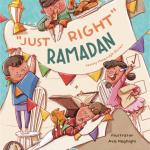
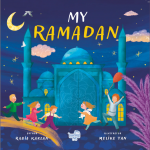


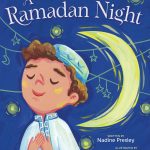
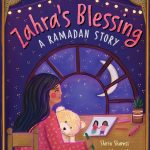
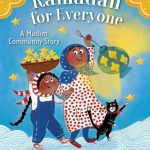 Ramadan is here! And this year, Habeeba is finally going to fast all day, every day, and pray all the special Ramadan prayers at night at the masjid, just like her older sister, Sumaya. The holy month is filled with decorations, beading, crafts, delicious recipes, religious ceremonies—so much activity that it’s hard for Habeeba to stay awake during prayer services or to resist Baba’s gooey, cheese-filled kunafa drenched in sweet syrup when she gets home from school. Habeeba is discouraged. How else can she be observant like Sumaya?
Ramadan is here! And this year, Habeeba is finally going to fast all day, every day, and pray all the special Ramadan prayers at night at the masjid, just like her older sister, Sumaya. The holy month is filled with decorations, beading, crafts, delicious recipes, religious ceremonies—so much activity that it’s hard for Habeeba to stay awake during prayer services or to resist Baba’s gooey, cheese-filled kunafa drenched in sweet syrup when she gets home from school. Habeeba is discouraged. How else can she be observant like Sumaya? Haneen’s Momma says that during Ramadan raindrops bring blessings and answer prayers. As they travel through the streets on a slow bus ride, rain drips down the window, and Haneen prays for new shoes and bright dresses–gifts she really, really wants to receive for Eid.
Haneen’s Momma says that during Ramadan raindrops bring blessings and answer prayers. As they travel through the streets on a slow bus ride, rain drips down the window, and Haneen prays for new shoes and bright dresses–gifts she really, really wants to receive for Eid. “Ramadan on Rahma Road: A Recipe Storybook” introduces us to Rahma Road, where Muslims of many diverse backgrounds get together to observe Ramadan together. +10 points for this book explicitly mentioning recitation of Qur’an and fasting with hope for reward from Allah!
“Ramadan on Rahma Road: A Recipe Storybook” introduces us to Rahma Road, where Muslims of many diverse backgrounds get together to observe Ramadan together. +10 points for this book explicitly mentioning recitation of Qur’an and fasting with hope for reward from Allah!